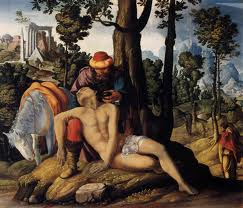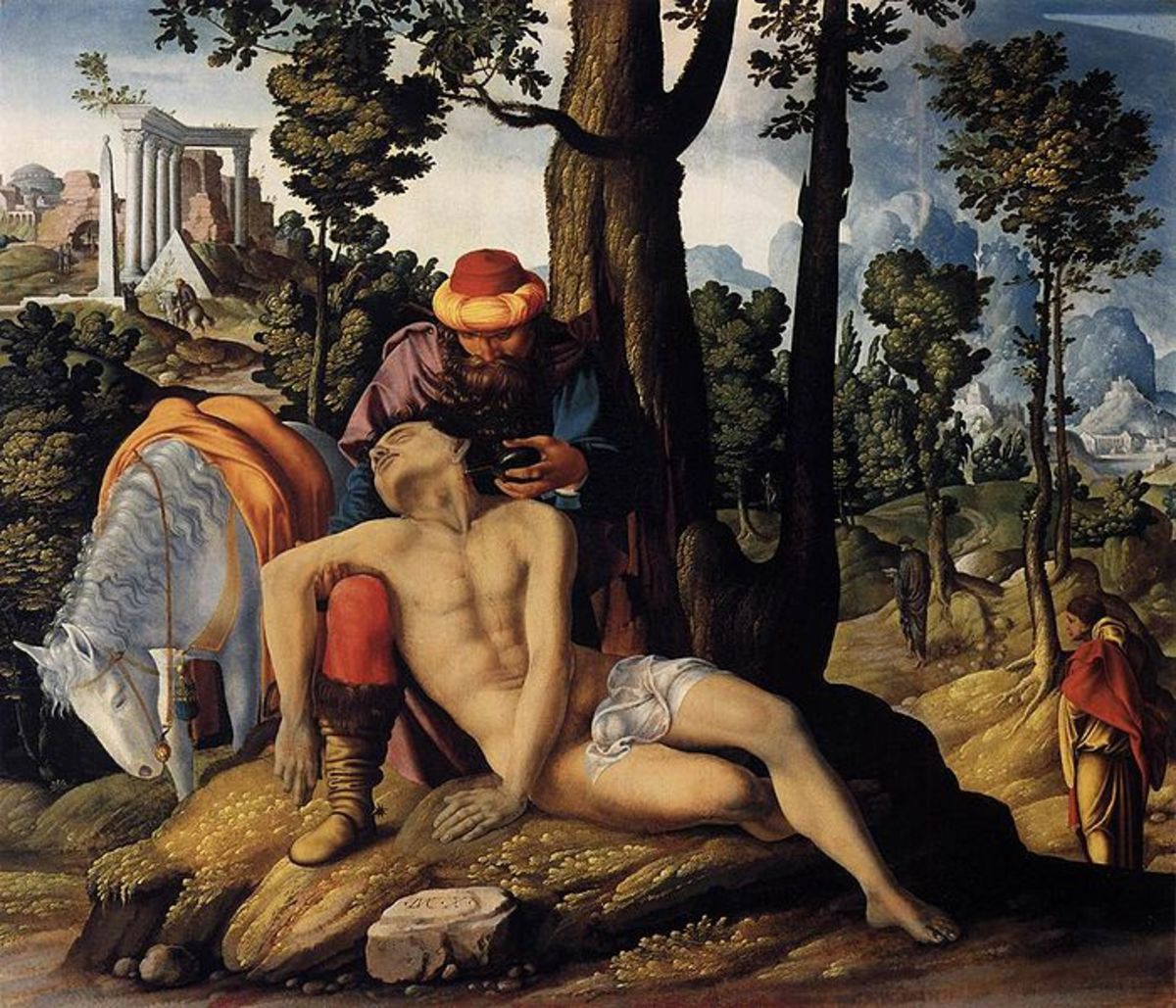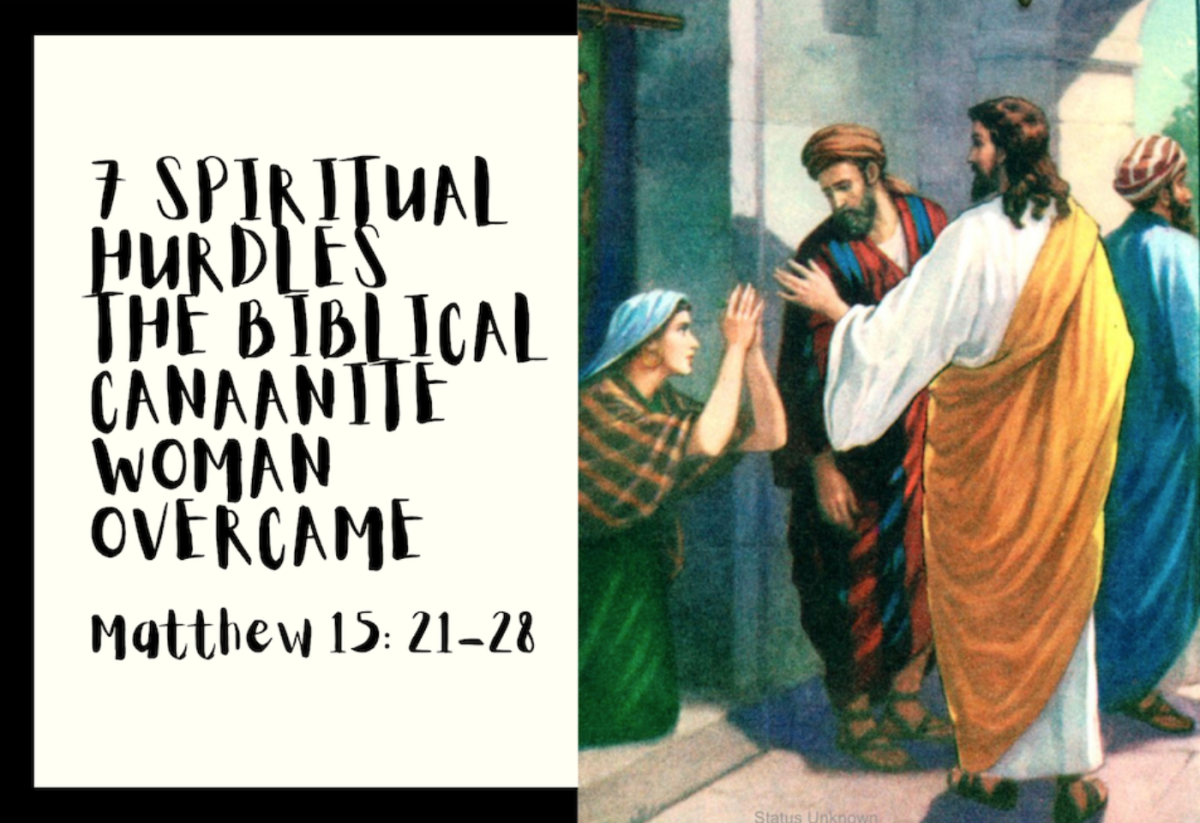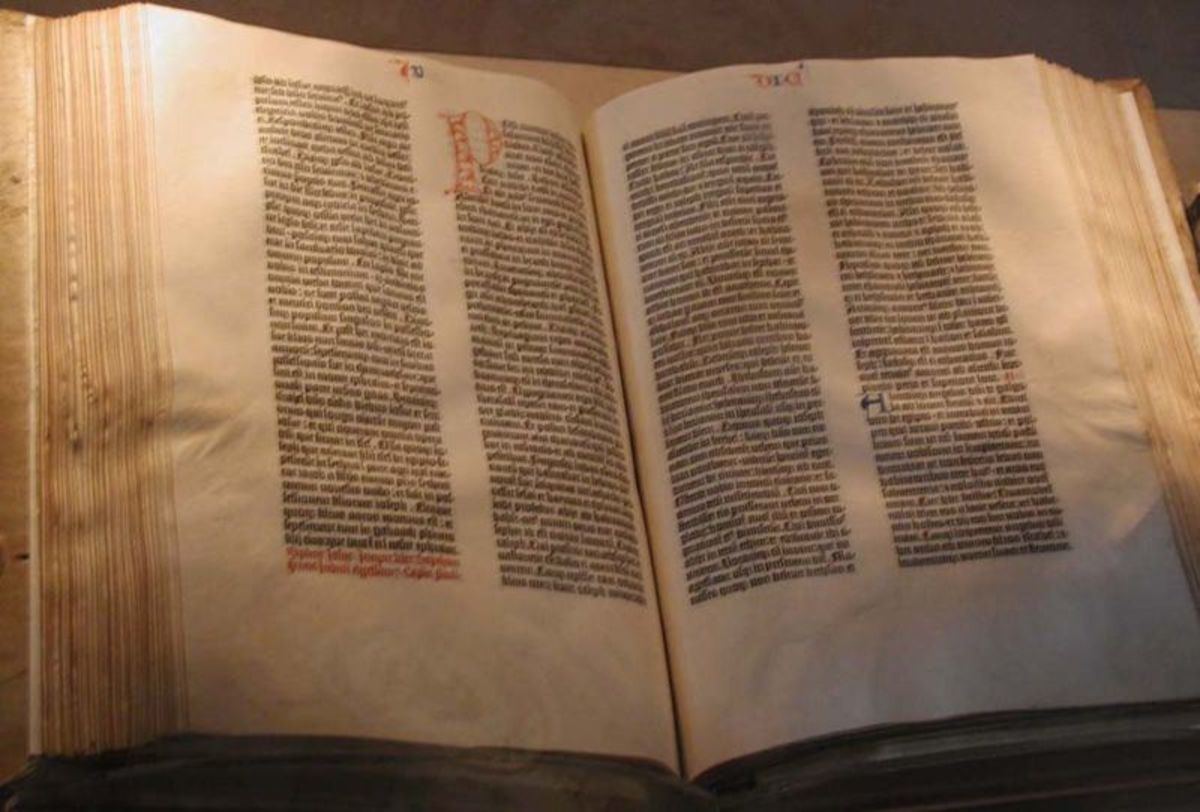The parable of the Good Samaritan retold , with apologies to Jesus and Saint Luke
Contents
Introduction to the Parable of the Good Samaritan
The Parable of the Good Samaritan updated
Conclusion to the parable of the Good Samaritan. The words of Jesus
These words didn't only apply to Jesus.
The original Good Samaritan

Introduction to the Parable of the Good Samaritan
25 On one occasion an expert in the law stood up to test Jesus. “Teacher,” he asked, “what must I do to inherit eternal life?”
26 “What is written in the Law?” he replied. “How do you read it?”
27 He answered, “‘Love the Lord your God with all your heart and with all your soul and with all your strength and with all your mind’[a]; and, ‘Love your neighbour as yourself.’”
28 “You have answered correctly,” Jesus replied. “Do this and you will live.”
29 But he wanted to justify himself, so he asked Jesus, “And who is my neighbour?”
Modern Good Samaritan?

The Parable of the Good Samaritan updated
In reply, Jesus said.
A man was driving between Birmingham and Wolverhampton. About halfway there he was attacked by carjackers, who ran him off the road. They beat him up really badly. Then they stole his car, and drove away leaving him very badly injured by the side of the road.
While he lay there bleeding and unconscious, a bishop in The Church of England drove up the road. He was on his way to London to speak in The House of Lords against a government plan to cap the level of benefit to be given to those in receipt of it. He had spent years studying theology, and he had preached hundreds of sermons reminding people of the necessity of looking after the poor. So extensive was his knowledge of the subject that he knew over one hundred words for poverty, and almost twice that for degradation. (He needed to use Latin, and some French phrases to reach that total). But the erudition impressed his listeners. They always went away feeling that they had heard a very good sermon. When he preached against the greedy sins of capitalists and bankers, he almost got applauded by the congregations. His well-known stance on these issues had even earned him a column spot in one of the better known elitist left wing newspapers. Television producers were constantly inviting him to air his enlightened views on their late night discussion programmes.
When he saw that there was a man lying bleeding by the side of the road, he did stop for a minute. But when he thought about it he did nothing. He needed to get to London for the debate. Phoning the police or an ambulance might mean giving his name. There might be a scandal. The complications could be endless. Besides the man might just be a drunk. The most responsible thing to do would be to continue his journey. So that is what he did.
A little while later another car drove up. This driver was on a similar high moral platform as the bishop, although she would not be caught dead in a church. This Lady Professor from the University of Warwick was an avowed atheist. Indeed she often took part in debates against the bishop. She defended rationality against, what she perceived, was the superstition of the prelate. She hit the headlines when she led a sit-in of lesbians and gays in the University Chapel, to protest against not being allowed to use it to perform a marriage service for her lesbian partner and herself.
She was an absolute libertarian. She also wrote a regular column in a magazine that was dedicated to the virtues of freedom and social justice for all. The fame she enjoyed got her invited to all the top conferences on left wing issues. This was good, because rich socialists always had the best wines at the after conference dinner parties. The Lady Professor was especially welcome at all these gatherings because of her well known hatred of greedy bankers, and her views on the evils of capitalism.
Her destination was in a seaside town, where she was due to make a speech to a gathering of “Lesbians for vegetarianism”.
When she saw the injured man, she did slow down, but only to swerve past him. The “big picture” was all important to her. This meant that peas and pasta for “dykes” had to take precedence over some stranger lying in the road. He wasn’t her problem.
About ten minutes later a red sports car came down the road. The man driving this vehicle was wearing a pair of wrap-around sunglasses. They were on him to disguise the pair of black eyes that adorned his face. He had got those after he had taken part in a television debate with the bishop over the evils of capitalism, and whether bankers should receive bonuses. Since he was the chief executive of a well-known bank, it should be easy to guess which side of the argument he supported. He got the shiners when he was confronted by an overzealous anti-capitalist in the studio audience. He was on his way to London to consult with his accountants about the best way to invest his two million bonus, so as to minimise his tax liability.
As he drove along he was thinking about how painful it was to have two black eyes, and how fed up he was with everyone hating him. Still the thought of having that huge bonus definitely took the edge off the pain.
When he drove round the corner and saw the man lying on the road, he jammed on his brakes. He did make sure that his sports car was safely parked before he did anything else. You don’t become a top banker by being careless. Why break the habit of a lifetime?
Then he rushed over and checked out the injured man. He did not pour either oil or wine on his wounds. But he did give him a drink of water from his bottle of “Perrier”. There was a first aid kit underneath the seat of his car, and he did his best to bandage the victim, and clean him up a bit.
All this took a few minutes. Then the banker took out his “I Pad”, and looked up the number of an exclusive private hospital. He phoned them, and after he had identified himself, he ordered an air ambulance to come and take himself and the patient to the top class hospital. He requested that they bring an operative to drive his red sports car there as well. He might be good, but there was no point in being foolish.
He stayed overnight in the hospital to make certain that the man was getting the best treatment. When he left in the morning, to arrange the shifting of some assets to an overseas tax haven, he paid in advance for any specialist treatment that might be needed. He also left his number with the hospital, and instructed them to contact him if there were any more expenses to cover.
Conclusion to the parable of the Good Samaritan. The words of Jesus
36 “Which of these three do you think was a neighbour to the man who fell into the hands of robbers?”
37The expert in the law replied, “The one who had mercy on him.”
Jesus told him, “Go and do likewise.”
We all experience times when we would just like to pass by on the other side. The parable of the Good Samaritan teaches us that we should try always to be empathetic. We may be living comfortable lives but we do have a duty to consider those less fortunate than we are. We should also be less judgemental when it comes to casting aspersions at the fashionable “bête noirs” of our society. None of us are perfect.







